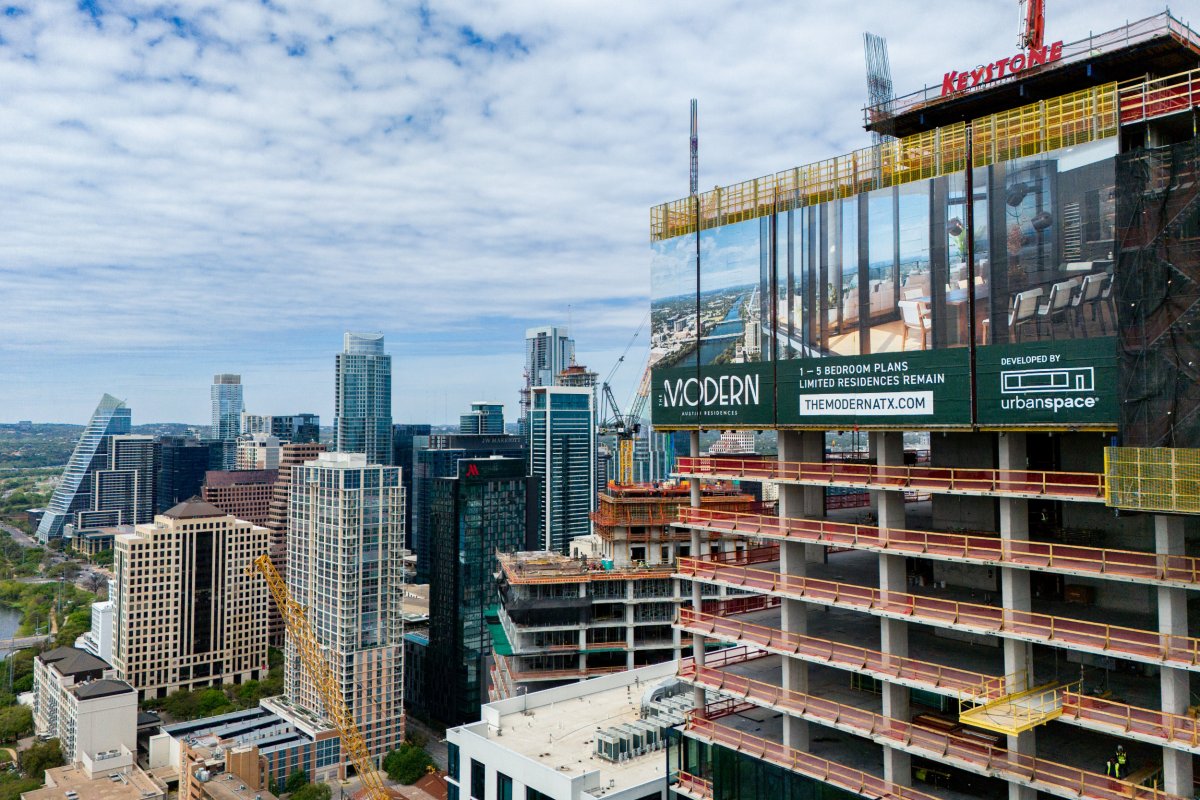A real estate expert is warning that the Austin rental market is "collapsing" just years after the initial boom during the COVID-19 era.
During the pandemic, the numbers of Americans moving to the capital city and Texas in general surged as people sought warmer weather and more affordable living in the rise of remote work.
From 2010 to 2020, the Austin metro grew by 33 percent, adding around 567,000 people, and 53,301 moving there in 2020 and 2021 alone, according to the U.S. Census Bureau.
However, that tide might be turning, said Nick Gerli, CEO of real estate data platform Reventure.

"The Austin, TX rental market is collapsing before our eyes," Gerli wrote on social media platform X, formerly Twitter. "With the median apartment rent dropping 15% over the last 2+ years. The vacancies have skyrocketed. Rental concessions are everywhere."
Rents in Austin are now only 9.8 percent higher than pre-pandemic, Gerli said, meaning that many landlords are losing money as property taxes and insurance costs increase.
"This is a harsh lesson on the boom/bust cycle in real estate for many developers and investors who bought into Austin during the boom," Gerli said, adding that the rental market in Austin is being dragged down by "dueling forces." Reduced demand post-pandemic has clashed with the surge in housing supply.
At the peak in 2022, apartment developers in Austin pulled permits for more than 25,000 multifamily units in a year. And with time, the units have been completed but are now sitting empty, forcing landlords to reduce their rent.
At the height of the pandemic in September 2021, Austin's rental vacancy rate was only 3.9 percent, but it's now risen to 9.5 percent.
"With so many vacant apartments, and rents that are still overpriced, landlords have no choice but to cut the rent to put heads in beds," Gerli said.
Ultimately, this is good news for renters in Austin, especially as incomes have also grown in Austin over the last five years. And the affordability is only likely to increase in 2025 as the city continues on a massive pipeline of construction projects, Gerli said. "I suspect there will be lots of distress at some point for Austin, TX landlords. Because while their rents are dropping, their expenses are spiking."
Property taxes in some areas of Austin are up 30 percent to 40 percent from pre-pandemic times, and landlords might face a "nightmare scenario" in which many might be forced to liquidate, Gerli said.
Austin home prices are also adapting to the new supply and demand, with the city's home prices now considered only 12 percent overvalued, according to Reventure data. Two years ago, they were at 50 percent.
"If you squint, you can begin to see a bottom forming in Austin's housing market sometime in 2025," Gerli said.
Title and escrow expert Alan Chang said Austin's housing boom in 2021 and 2022 naturally led to construction companies working to add more housing units in the area, but that can trigger long-term consequences.
"The increased supply has resulted in a cooling and leveling off of rents in this market," Chang told Newsweek. "The population growth has also stabilized a bit so the combined factors of lower demand and increased supply have done the logical thing of decreasing cost of rents."

















:quality(85):upscale()/2024/04/24/878/n/3019466/36c5693c662965c5d1ce91.72473705_.jpg)


 English (US) ·
English (US) ·